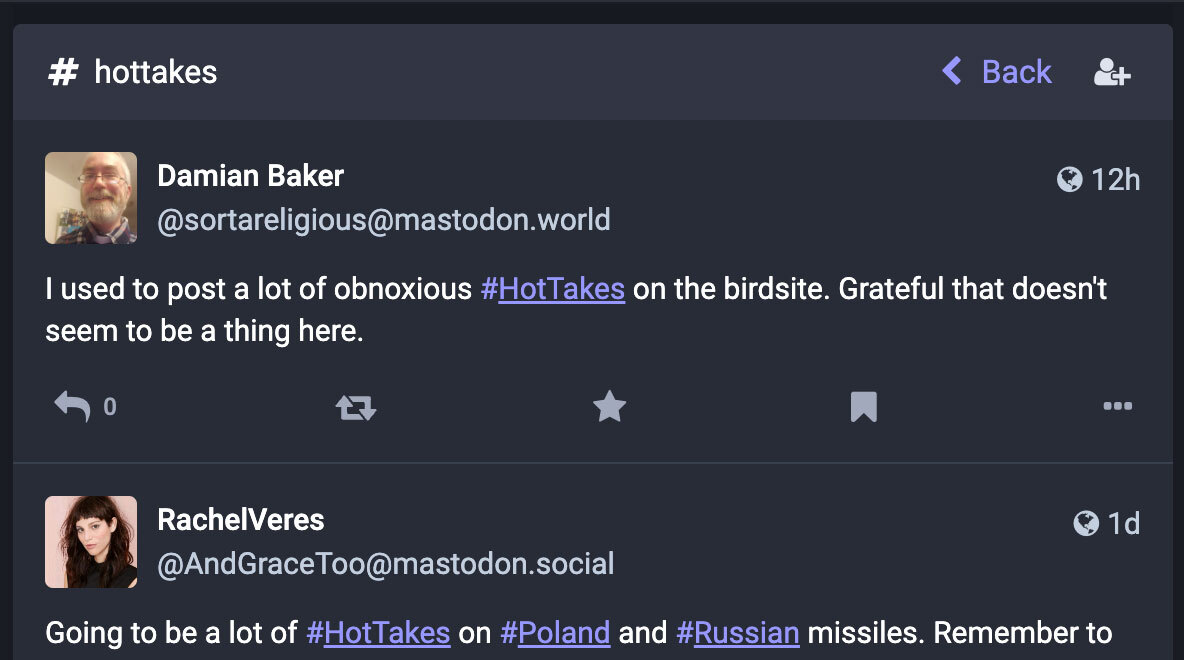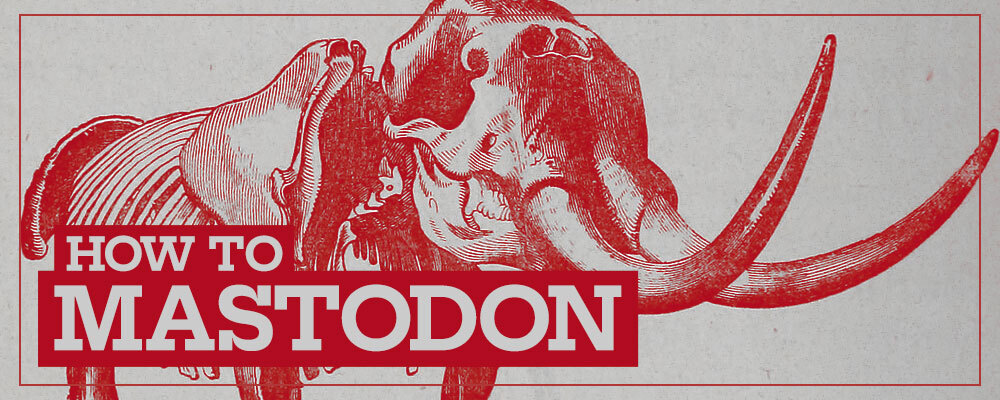
(Internet Archive/Flickr)
Okay, so is the the final issue of the How to Mastodon pop-up, and I have to say, I’ve learned a lot about Mastodon and its user base over that period. I already had a bit of a handle on a lot of it, but the fediverse contains multitudes.
I think a lot of new or less-seasoned users, are also learning things about the fediverse as time goes on, and we should give them room to learn. I’ve been around Mastodon in bits and pieces since 2016, and even I’ve gotten a lot of useful feedback from old-timers about these newsletters, and I think that encouraging an environment where everyone is learning is perfect for this moment.
So before I dive into this next topic—the one that I end this six-part pop-up series on, I encourage you to keep learning. I will likely discuss Mastodon in future issues of MidRange, because it’s an interesting topic that will need people talking about it. (If you’re not subscribed, now is a good time to do so!)
Anyway, let’s get to it.
Well, This Is Awkward …

On Mastodon carrying a reputation among some as the social networking version of “fetch”
As a journalist and writer, I have been posed with a lot of social networks over the years, many of which have found themselves the source of much hype.
At least some of that hype is the result of a prime-the-pump mentality that comes with venture capital, looking for ways to improve a success story by getting all the right placements at the right time.
But occasionally, a network comes along out of nowhere and you find yourself flat-footed. Why this? Why, out of all the things out there, was this the one that grabbed attention?
I think that Mastodon, for some people, carries that reputation. I’ve seen a lot of people complain, for example, about the name not being good, without really going much further about why the name is terrible, and that being enough of a deterrent not to use the service. People are frustrated with the onboarding process; people don’t understand why basic features like search are so underpowered. And people really don’t get why there isn’t just one server, and aren’t convinced about your arguments that “it’s kinda like email.”
They’re annoyed that they might have to learn a new thing, and that new thing comes with a lot of unknowns.
But on the other hand, the network has made incredible progress in just a couple of weeks. News sites and big-name apps alike have staked out claims on the network, as have social networking-friendly celebrities like Kathy Griffin, Stephen Fry, Neil Gaiman, and George Takei. As network founder Eugen Rochko recently pointed out, even former Twitter employees have chosen to build a network on his creation.
Additionally, I think that there is a real risk of not seeing the full potential of what’s here because you find yourself thinking about this in commercial social network terms. With that in mind, I want to point out the writings of Chris Trottier, a user who has emerged as something of an evangelist for the fediverse, and has been working on applications to serve it. He has been working hard to make the case, for instance, that Mastodon should not be seen as just a new social network, but as one small hub of many in a new decentralized world of social networking. He has a lot of points of view and is helping to fill in a lot of gaps for new users at the moment who are just trying to figure this all out, which you can dig into on his account if you feel so compelled, but I think the key thing is that if you want to learn more about it, you have options.
In many ways, the fediverse carries a role not unlike other heavily hyped things, such as the blockchain, Web3, or the metaverse, except it has actual use cases, rather than nebulous potential. You can make the fediverse a useful part of your life now if you so wanted—and that differentiates it from a lot of other hype targets. As the EFF’s Cindy Cohn and Rory Mir put it in an article this week, the fediverse matters because it has untapped potential:
To be clear: there is nothing magical about federated worlds. If a federated social media is better than the centralized incumbents, it will be because people made a conscious choice to make it better—not because of any technological determinism. Open, decentralized systems offer new choices towards a better online world, but it’s up to us to make those choices.
Nonetheless, there are always risks with these kinds of things, don’t get me wrong. In many ways, the email comparison I touched on above is actually fairly apt, whether or not people “get it.” But there are, of course, risks. For one, email has become an increasingly centralized beast as large companies have taken to banning messages that don’t come from trusted hosts. Running an email server is a difficult thing to do in 2022. What’s to say the fediverse might end up the same way?
I think, if you’re curious about Mastodon, you have to think of it in part as a gateway drug to something that could have more potential in the long term—which, as a result, makes it worth trying, in the way you awkwardly cozied up to Snapchat or Pinterest back in the day. If it doesn’t hit even 10 percent of the scale of something like Twitter, that’s fine, because people should choose social networks because they’re happy with them and gain value from them, not because they are their path to maximum reach.
And don’t get hung up on the name.
Tips & Tricks

Hashtags gain additional superpowers
As I’ve highlighted a few times on here, hashtags play an important role in the Mastodon ecosystem, in part because of the fact that search is intentionally limited.
But with the release of Mastodon 4 this week, the tool has gained a new capability of being able to be added to your main feed through a follow functionality. (Note that your server needs to be upgraded to the latest version to use this functionality.) By hitting the plus button, you will suddenly get that entire feed of hashtags pushed into your timeline.
To turn it off, just search for that hashtag again and unfollow.
Obviously, you don’t want to do this on every hashtag under the sun. You may want to narrow it down to a topic that only gets a few posts a day, rather than something that gets thousands an hour. But the plus side is that you have the choice to do it, and if you’re new to the service and don’t have many people you’re following, you can fill your timeline with #cats or #memes and have something entertaining to view.
Or you can just ignore it. The best part of features like this is that you don’t have to use them to get something out of the service.
Links & Stuff
» Beyond the great piece I linked above, EFF also has a decent discussion about the privacy and security considerations of Mastodon. Their take: While not perfect, its transparency is welcomed.
» Europe’s digital privacy regulations were built to impact large companies such as Twitter, Meta, and ByteDance. What will they do about the fediverse? On Tech Policy Press, a pair of digital policy experts dive into the issue.
» An interesting discussion point from Domain Name Wire—the rise of new Mastodon servers is directly helping some of the more obscure top-level domains, like .social or .lol, gain popularity.
One Killer Take

Djoerd Hiemstra, an expert and researcher on search engines, put up a great thread this morning highlighting how he shifted his point of view on Mastodon needing search after engaging with the community. It’s an excellent thread and I highly recommend you check it out.
Alright, that closes up shop on How To Mastodon, a pop-up newsletter hiding inside of MidRange. Follow me on Mastodon for more insights and tips, along with all the other weird stuff I’m interested in. Keep following MidRange for more hot takes with a tight deadline.



